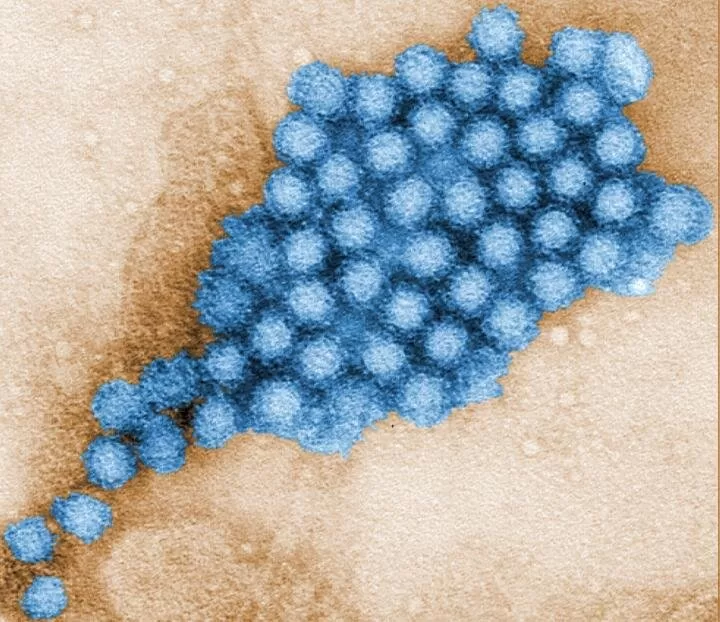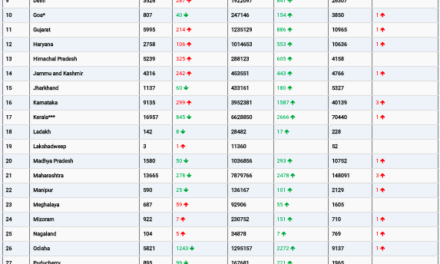A groundbreaking discovery by scientists at The University of Texas at Austin, in collaboration with researchers from the University of North Carolina at Chapel Hill and the National Institutes of Health, has unveiled a potent antibody capable of neutralizing a wide range of norovirus strains. This breakthrough, published in Science Translational Medicine, offers promising avenues for developing a broadly protective norovirus vaccine and new antibody-based treatments.
Norovirus, a highly contagious virus that causes severe gastroenteritis, affects over 700 million people globally each year. While most individuals recover, the virus poses significant risks to young children, older adults, and those with weakened immune systems. The virus’s high mutation rate and genetic variability have historically hindered vaccine development, limiting long-term immunity.
The research team, utilizing advanced molecular analysis, examined immune responses from participants who received an experimental oral norovirus vaccine developed by Vaxart. Their analysis revealed that certain individuals produced broadly neutralizing antibodies effective against numerous norovirus strains, including both historical and emerging variants. Notably, these antibodies cross-neutralized multiple norovirus genotypes, covering approximately 75% of global outbreaks.
“These findings provide critical insights into how the immune system responds to norovirus and pave the way for designing a vaccine that offers broad, long-lasting protection,” stated George Georgiou, co-corresponding author and professor at UT Austin. “We found antibodies that are very broad in terms of being able to neutralize many different variants that have circulated or are circulating now.”
A particularly promising antibody, VX22, targets a previously unknown vulnerable region in the virus’s structure. Unlike typical antibodies that target only a few strains, VX22 neutralizes noroviruses from multiple genotypes by binding to a highly conserved region, making it a strong candidate for vaccine development.
“Norovirus cases this winter have surged to twice the two previous annual peaks, which really underscores the fact that norovirus is both prevalent and rapidly evolving, and we need a vaccine against it to reduce the global burden of diseases associated with norovirus,” said Juyeon Park, first author and postdoctoral researcher at UT Austin. “Our findings can better inform the future design of vaccine development against norovirus.”
Norovirus spreads easily through contaminated food, water, and surfaces, causing outbreaks in various settings, including schools, cruise ships, and healthcare facilities. A vaccine capable of protecting against multiple strains could significantly reduce infections, hospitalizations, and the associated economic burden.
In addition to vaccine development, the identified antibodies could be used to create post-infection therapies, particularly beneficial for immunocompromised individuals who struggle to combat the virus.
“This discovery brings us closer to a vaccine that could provide lasting protection and prevent the devastating effects of norovirus outbreaks, as well as potential treatment for those already infected,” Georgiou said.
The research team is now focused on refining the vaccine’s design and validating these findings in broader populations, including elderly individuals and young children.
Reference: “Broadly neutralizing antibodies targeting pandemic GII.4 variants or seven GII genotypes of human norovirus” by Juyeon Park, Lisa C. Lindesmith, Adam S. Olia, Veronica P. Costantini, Paul D. Brewer-Jensen, Michael L. Mallory, Cynthia E. Kelley, Ed Satterwhite, Victoria Longo, Yaroslav Tsybovsky, Tyler Stephens, Jeffrey Marchioni, Christina A. Martins, Yimin Huang, Ridhi Chaudhary, Mark Zweigart, Samantha R. May, Yaoska Reyes, Becca Flitter, Jan Vinjé, Sean N. Tucker, Gregory C. Ippolito, Jason J. Lavinder, Joost Snijder, Peter D. Kwong, George Georgiou and Ralph S. Baric, 5 March 2025, Science Translational Medicine. DOI: 10.1126/scitranslmed.ads8214
Disclaimer: This news article is based on information provided and should not be taken as medical advice. The development of a widely available norovirus vaccine or treatment is still in progress. Further research and clinical trials are necessary to confirm the safety and efficacy of these findings. Consult with a healthcare professional for any health concerns or before making any decisions related to your health or treatment.












